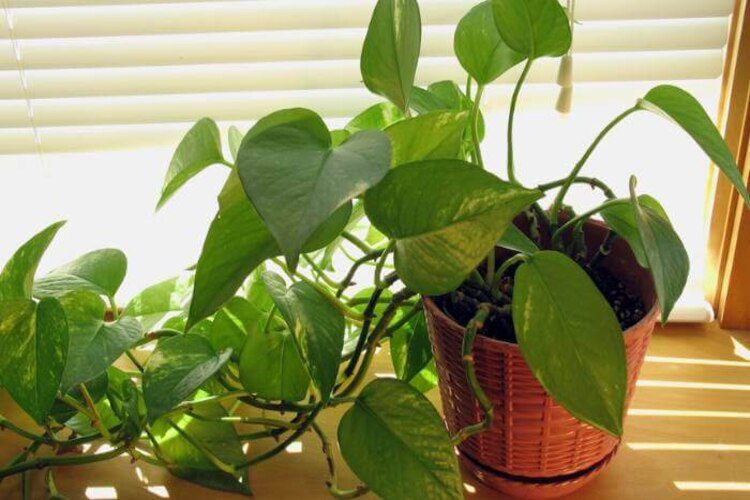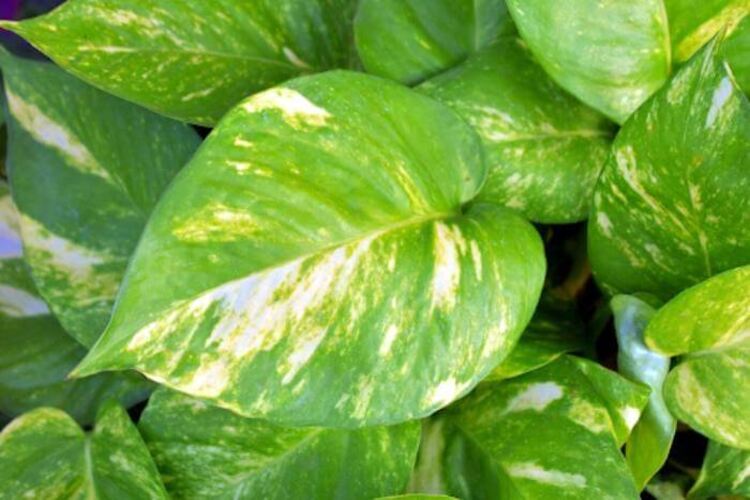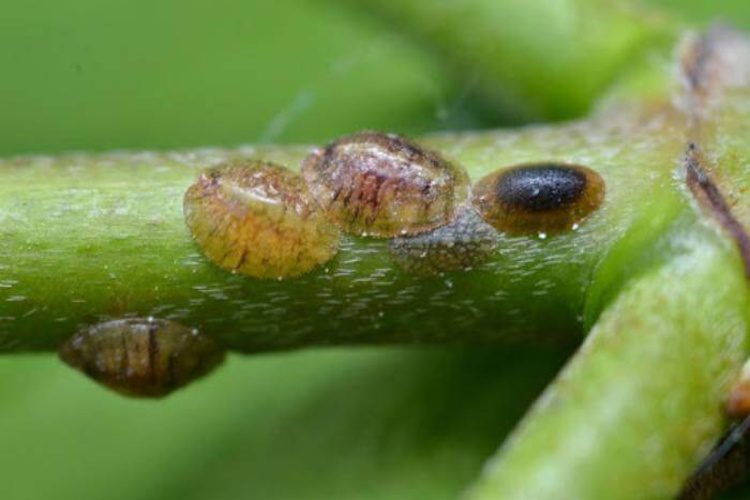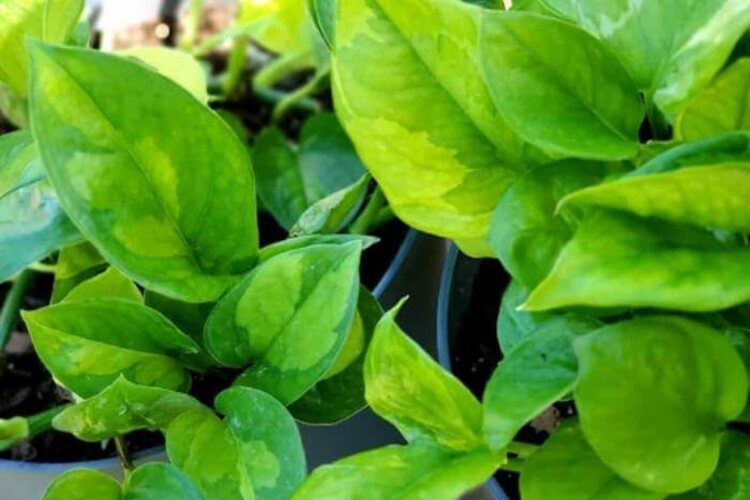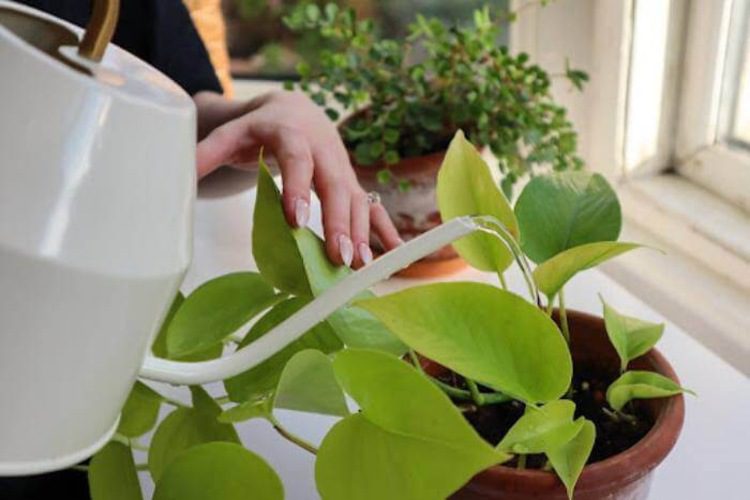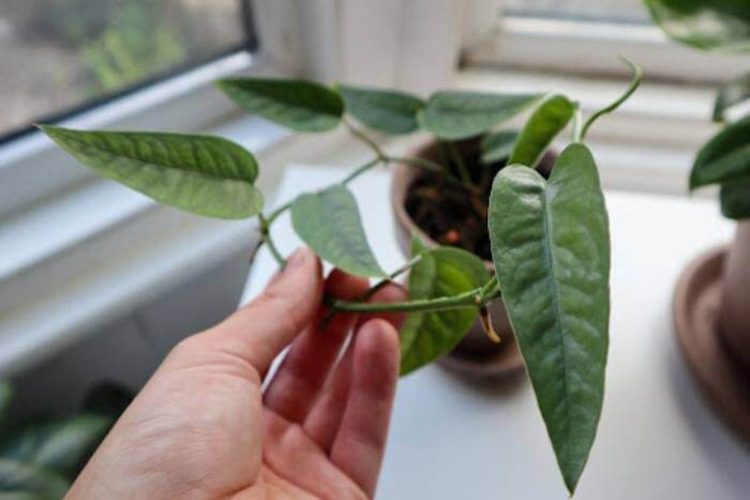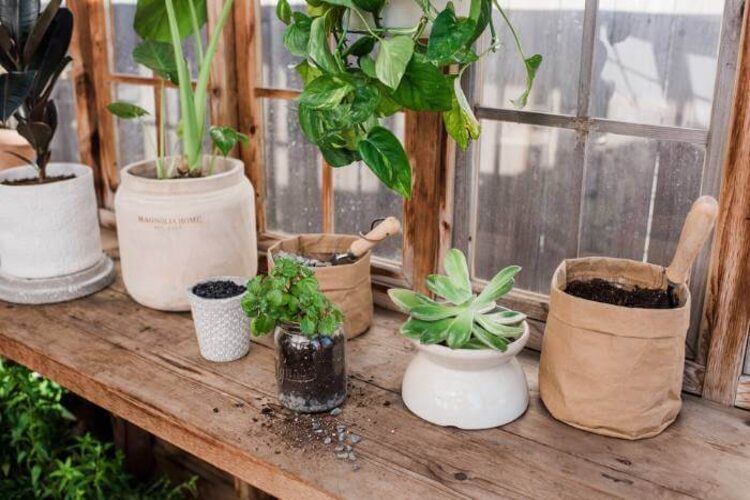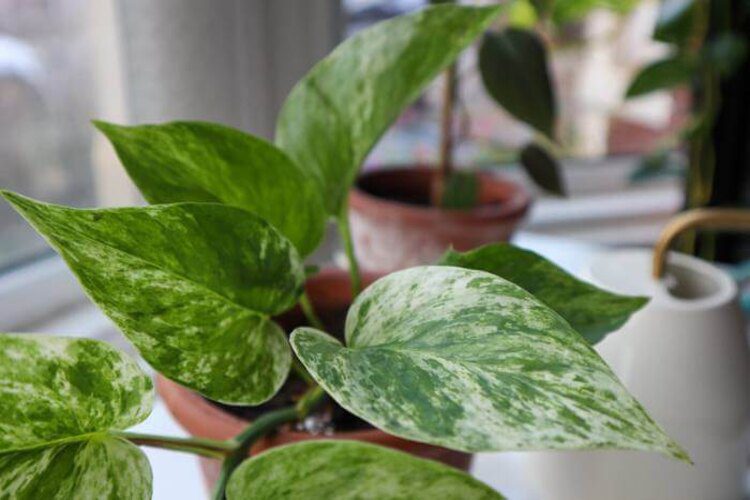Global Green Pothos Care: Best Guide For Beginners
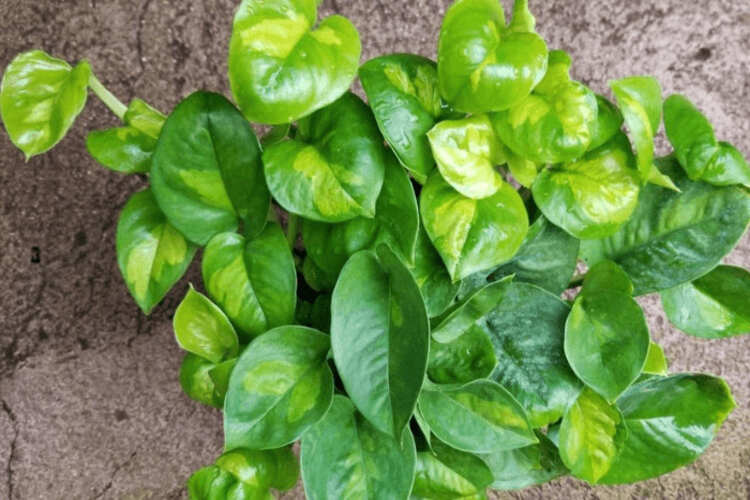
In this blog post, we’ll outline what you need to know in order to care for your plant and help it thrive. You’ll learn the best ways to water and fertilize your pothos plant, how much light it needs, and what kind of soil is best suited for its growth.
So if you’re ready to learn more about taking care of this kind of pothos, keep reading!
| Scientific Name | Epipremnum Aureum ‘Global Green’ |
| Common Name | Global Green Pothos, Global Pothos, Marble Queen |
| Family | Araceae |
| Origin | Australia |
| Plant Type | Perennial, vine |
| Bloom Time | Spring, summer |
| Flower Color | Green, white |
| Soil | Loamy, moist but well-draining |
| Water | Weekly, water if the top half of the soil is dry |
| Temperature | 60°F–80°F (16°C–27°C) |
| Sunlight | Bright indirect sunlight |
| Toxicity | Toxic to humans and pets |
About Global Green Pothos
As a Pothos (Epipremnum aureum), this plant is hardy yet not less attractive and can be used for a variety of purposes. It is commonly found in tropical and subtropical areas but can be grown in many other climates as well. Global Green is often used for indoor decoration, thrives in low-light conditions, and has beautiful green leaves with white markings. Compared to Emerald Pothos, Global Green has a more bluish-green hue, and its leaves are slightly smaller. Emerald Pothos also has more pronounced white markings on its leaves.
However, it also has some very valuable properties that make it an excellent choice for propagation. For one, it is one of the easiest plants to propagate from cuttings; new shoots will often form roots without any additional help.
Additionally, this buddy grows quickly and easily establishes itself in new environments, making it an ideal plant for reforestation projects or restoring damaged ecosystems. Finally, Global Green is also resistant to pests and diseases, making it an ideal plant for use in agriculture and landscaping projects.
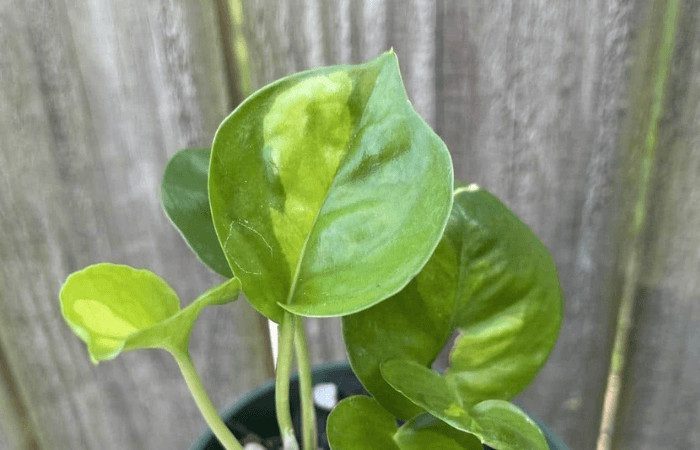
Global Green Pothos Care
The Global Green is a beautiful and easy-to-care-for houseplant that is perfect for those who want to add some greenery to their home without having to worry about too much maintenance.
In this article, we will discuss the steps to take to care for your beloved houseplant so that it stays healthy and looks elegant.
Light
Your Global Green Pothos will do best in bright, indirect light. It can tolerate some direct sunlight, but it is essential to avoid too much direct sunlight, as this can scorch the leaves. If your pothos plant is not getting enough light, you may notice the leaves starting to turn yellow or pale green.
Soil
The pothos plant does best in a well-draining potting mix. You can use a commercial potting mix or make your own by mixing equal parts perlite and peat moss. Be sure to add extra perlite if your potting mix is too dense. Add enough water so that the mix is moist but not soggy.
Watering
Just have your pothos “drink” when the top inch of the soil is dry. Water the plant deeply, and then allow the excess water to drain away. Be sure not to leave your pothos sitting in water, as this can cause root rot.
In general, you should dampen your pothos plant about once a week. During the winter, you may need to water it less often as the plant will go into a semi-dormant state and won’t need as much “drinking”.
Fertilizer
Feed this plant every two weeks during the growing season with a balanced liquid fertilizer diluted to half strength. During the winter, you can reduce fertilizing to once a month.
Temperature
The ideal temperature to apply to this plant will depend on the time of year. During the summer, it should be kept in a warm room with temperatures between 65 and 75 degrees Fahrenheit. In the winter, it can be moved to a cooler room where the temperature is between 55 and 60 degrees Fahrenheit.
Humidity
As a tropical plant, it prefers humid environments but is also tolerant of average household humidity levels. If you live in a particularly dry climate, you may want to mist your plant occasionally or place it on a pebble tray filled with water to help raise the ambient humidity level around it.
Repotting
This fast-growing vine will need to be repotted every one to two years. When repotting, choose a pot that is slightly larger than the current one.
Be sure to use a well-draining potting mix and water deeply after repotting. Allow the excess water to drain away before putting the plant back in its location. With just a little bit of care, your Global Green Pothos will thrive and add some beautiful greenery to your home.
Global Green Pothos Propagation
To propagate a Global Green plant, you need to follow these steps:
Step 1: Cut a pothos plant with the right care, and it will grow new roots! Begin by cutting a healthy vine. Sanitise the knife or pruners with diluted alcohol to prevent the disease from entering your plant.
Step 2: Make a 45° cut behind the back node. The brownish nubs that emerge where leaves meet the stem can serve as nodes for new roots to form and grow; it’s important you have at least 2 nodes completely covered by water when your plant is fully submerged.
Step 3: Root your cutting in a jar of fresh water and change the water weekly. Keep it anywhere that’s room temperature and provides indirect sunlight, like outside on an east-facing window.
Step 4: When the pothos cutting has robust roots that are 2-4” long, you can transplant it into a well-drained potting mix just like your other plants.
Step 5: You can use the method that involves sphagnum moss and perlite or coco coir as media for planting roots, then keep them consistently moist with an occasional misting to help encourage healthy growth.
Toxicity
The Pothos plant is a popular indoor plant that is often used in homes and offices. While it is generally considered safe, there are a few potential dangers associated with this plant.
One of the biggest concerns with Global Green is its toxicity. Both Global Green and its familiar such as Silver Ann Pothos are members of the Araceae family, which includes many other toxic plants, such as philodendrons and peace lilies. If ingested, the leaves and berries of this plant can cause nausea, vomiting, and diarrhoea. In some cases, more serious health complications may occur
It’s important to keep this plant out of reach of children and pets and to wash your hands thoroughly after handling it. If you experience any symptoms after exposure to this plant, contact your doctor immediately.
Common Problems
Global Green is a popular indoor plant that has been widely used for many years. There are several problems with this plant, the most common being yellow leaves and not growing.
Yellow Leaves
One reason for the yellow leaves may be due to the light levels the plant is receiving. If the plant is not getting enough light, it will produce less chlorophyll, which will cause the leaves to turn yellow.
Another possibility is that the soil is too wet or dry. The soil should be kept moist but not wet. If it’s too wet, the roots will rot, and the plant will wilt if it’s too dry.
Not Growing
The hardy-trailing vine may also not grow because of low humidity levels or incorrect watering practices. To increase humidity levels, place the pot on a tray of pebbles and water and keep it in a location where humidity is high (near a kitchen or bathroom).
Be sure to check often to make sure the water doesn’t evaporate. Regarding watering, you should water thoroughly when the top inch of the soil feels dry to the touch.
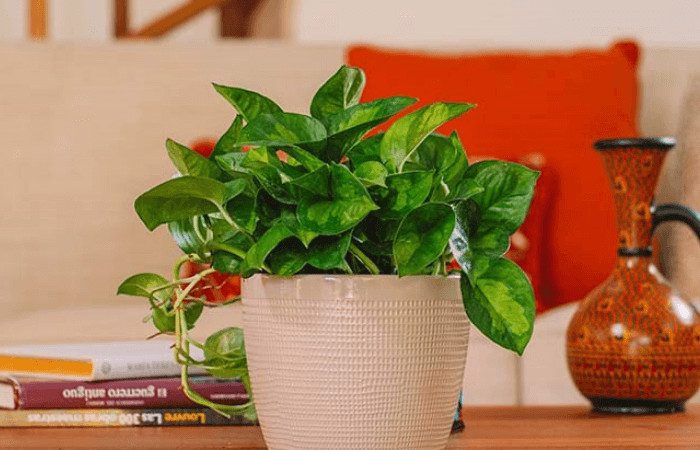
Care Tips
If you want to keep your Global Green looking its best, follow these simple tips:
- Keep the potting mix moist but not wet.
- Fertilize with a balanced fertilizer every other week.
- Water regularly, but don’t overwater.
- Allow the plant to dry out between waterings.
- Make sure the plant gets plenty of bright light, but avoid direct sunlight.
- Prune as needed to maintain shape and encourage new growth.
By following these tips, you’ll have healthy, happy Global Green Pothos that will thrive for years to come.
Conclusion
With its delightfully colourful new variety, Global Green has a special place in the hearts of those who love green-on-green variegation.
Global Green Pothos is the perfect plant for any occasion! It’s happy in various living conditions. When it comes down to storing your greenery, you’ll want this one because of its attractive mounding form, which makes them ideal side tables or mantles.
FAQs


